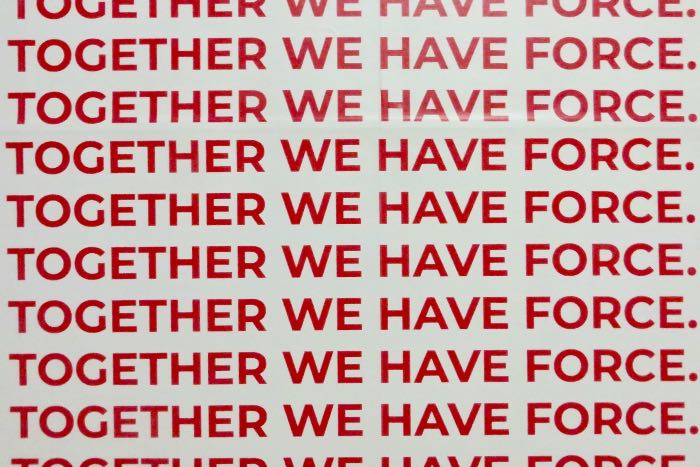
It usually doesn’t take a lot of thought to realize the problem. We can just feel it. And what it feels like is a vice, squeezing from opposing sides. In short, we feel trapped.
In these cases, the natural response is always “there’s nothing I can do.”
Then the important questions is “Are we trapped? Or does it just feel like it?”
The New Law
When a new law passes and we imagine all of the terrible scenarios, it suddenly feels permanent. It may as well have been there forever because we treat it like it will be there forever.
It also didn’t appear out of nowhere. People put it there.
Those people didn’t appear out of nowhere. Other people put them there.
But those people aren’t how they have always been.
People change. Their values change. And the things we choose to care about change.
Often, that trapped feeling comes from this distorted paradox. We think something is brand new and yet also think that new thing comes from a people who have always been that way. We can’t reconcile this; but we choose to believe it anyway.
Loads of Options
Counties choose how to respond to the law. Or whether to leave it to the school board. The school board chooses how to respond. Or leave it to the schools. The schools choose how to respond, or leave it to the students.
And at each point, the people leaving it to the people below them say “There’s nothing we can do. It’s up to you.”
None of these groups seems to include the most obvious option: to fight it.
The Typical Response
To find a technocratic solution. Preferably not in public. One that involves the least amount of input and least amount of stress on the system. And, of course, keeps the legal liability at its smallest.
When you’re in the heat of decision-making, this feels like the most sensible solution. And it is so common, I’m certain we’ve all done it at some point. Whether we’re trying to hold together a Fortune 500 company or a family.
Staying out of trouble is the first priority. Keeping the peace is second. Minimizing harm is third. And anything after that doesn’t really matter. Because we sacrifice it for the top two every time.
When it comes to laws targeting trans kids, for example, the actual health of kids, all kids, is the part that suffers. It may be the preamble to the legislation, but cover your own ass and keeping your favorite people happy are the priorities.
Freeing Ourselves
When we right-rank our priorities, we see why the typical response fails every time.
When we want our kids to be safe, healthy, and at their best for learning, this stuff really seems less daunting and terrifying.
Fear-based compliance by civic leaders and weaselly lawmaking by politicians keep a skittish populace from recognizing the truth.
A system which emphasizes the minimization of risk will refuse to lead.
Removing risk, rather than leading, teaching, and healing reigns.
“There’s nothing we can do.”
But this also means that anyone can lead. And everyone.
And every one who stands up, embodies a changed system.
The solution is obvious
But our common fear leads to common delusion. So we don’t see it.
The typical response is failure. And because we’ve grown to see failure as the norm, we think it is inevitable.
We also fail to see how connected we are. Wanting our leaders to lead so we can follow. Yes, leaders need followers, but followers don’t follow leaders unless some followers act like leaders enough to be the ones who first choose to follow. Which frees up those people with more to lose and gives them the opportunity to join in.
But the two most insidious truths about our own expectations are these.
- We accept the oppression of cascading burden as normal. That trans kids have to bear all of the emotional struggle of a bad anti-trans law than the schools, their boards, or the state. This isn’t their problem alone, it’s our problem.
- We all know the typical response is bad when we take a step back from it. It is opaque when we want transparent, manipulative when we want to figure it out, and it isolates the effected communities from participating in making decisions which impact them the most.
And we haven’t even discussed the role of experts, empowering each other, opportunities for advocates throughout the system, and genuine alternatives to fear-mongering.
Givens are often dead-ends rather than shortcuts
The mental shortcuts we take, often to right-size expectations or moderate our (or others’) outrage usually represent an unintended desire to remain in the vice’s grip.
“There’s nothing we can do.”
”Our hands are tied.”
”The new law prevents us.”
These are used as blanket denials—a conversational veto that ends the conversation before we can account for the options that are actually on the table.
We don’t do this because we like being trapped or oppose getting out of the vice. We are usually just scared to lead.
And deeper down, we’re scared to realize that loving our neighbors isn’t even a top-three priority.
This is what certain lawmakers depend on. They don’t want you following your conscience. They want you reacting to your fear.
When we ditch the fear, we find the options were always here.
